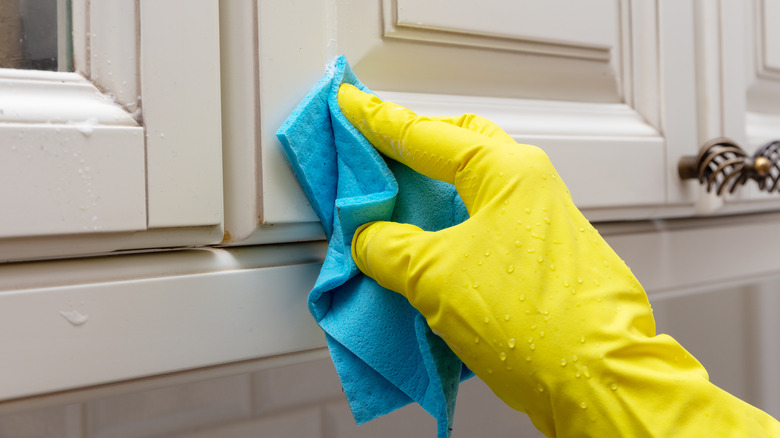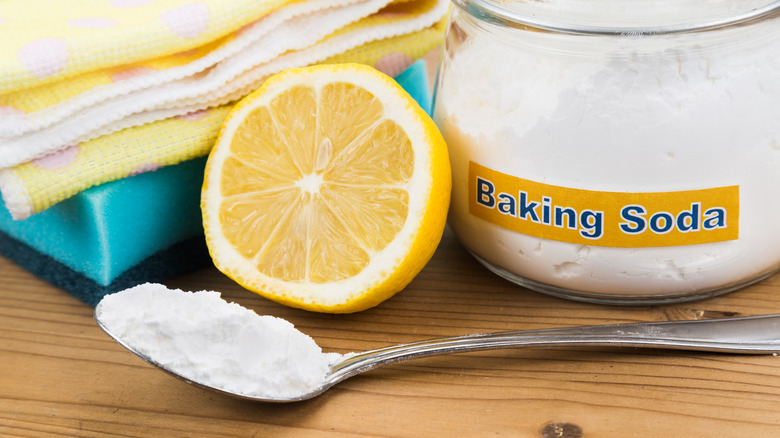Use This Scrub-Free Hack To Clean Under Your Kitchen Cabinets And Thank Us Later
We don't glance under our kitchen cabinets constantly, however, these unseen bits need some love in the form of periodic cleaning. The need to clean the underside is most obvious when they're an arm's length away from the spattering grease of your stovetop. But whether they're next to the stove or not, if the underside of your kitchen cabinets needs some TLC, we've got a low-intensity cleaning hack you're going to love. You can ditch the scrubbing but still get an immaculate clean under your cabinets with a combination of water, baking soda, and lemon juice, which has a ton of household uses.
Lemon smells fresh at any time of year and has rightly earned its status as a non-toxic cleaning agent. But just because it is a natural ingredient, it doesn't mean throwing caution to the wind — lemon is also an acid. Sure, let it do its acidic, oil-busting duty for a few minutes, but then it's important to rinse it completely from your surfaces. Baking soda is also a non-toxic, mild alkali cleaner, that dissolves grease, that's why the combination of these three ingredients reduces the need to scrub.
How to clean under your cabinets with lemon and baking soda
You need about a quarter to a half cup of baking soda. Add a cup of water and a generous spritz of lemon juice – just squeeze a fresh lemon right into the baking soda and water and swirl it all around. Soak a microfiber cloth in the mixture, remove the excess moisture, then apply the paste-like cleaner to the underneath of your cabinets, coating them. Let this cleansing formula sit on the surface for about five minutes.
Moisten a non-scrubby sponge with water, then clean off the mixture, making sure not to leave any residue behind. There's also an optional extra step, but one that we recommend if the wood under your cabinets is unsealed or unfinished. Because lemon is drying, consider conditioning your cabinets. Although there are suggestions to use olive oil and mineral oil to condition and protect wood after washing it, we don't suggest either one. Olive oil can turn rancid, and mineral oil is a petroleum byproduct with more than a passing association with skin cancer, per the National Cancer Institute. Instead, we recommend jojoba oil, an excellent stain and water-resistant conditioner that penetrates the wood and won't smell bad like vegetable oils. to complete this hack, the needed lemon, bicarbonate, and jojoba should cost you no more than $8.

